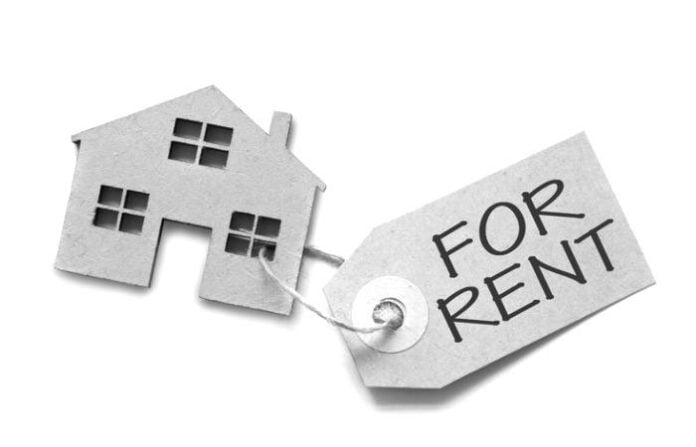On September 30, the statewide eviction moratorium under the COVID-19 Tenant Relief Act (CTRA) is due to end. However, the law will not simply return to its pre-pandemic form. Instead, a new law, the COVID-19 Rental Housing Recovery Act, (the “Recovery Act”), will take its place. Here are the key differences in practices and procedures.
Exemptions for SFP and new construction to the just cause eviction rules return
Presently, under CTRA, all properties in California are subject to the just cause eviction rules including single family properties. Beginning October 1, the standard exemptions to the just cause eviction rules return, the most significant ones being for single family properties (the notice of exemption, CAR form RCJC, has been integrated into the rental agreement) and new construction properties built within the last 15 years. An exempted property will in general allow the landlord to terminate tenancy without fault on 60- day notice. Keep in mind that local eviction just cause rules may be more stringent.
For rent due prior to October 1, 2021, the 15-day notice is still required (but not for rent due prior to March of 2020)
In terms of demanding rent, presently a landlord, under CTRA, must provide a 15-day notice to pay rent or quit along with a declaration of COVID related financial hardship and an information notice. If the tenant returns the declaration, the landlord is precluded from filing an unlawful detainer, and further, can only demand 25% of the COVID rent (from September 2020) which the tenant is required to pay by September 30, 2021. If the tenant fails to pay this amount by September 30, then the landlord may proceed to file an eviction lawsuit (assuming they’ve complied with other provisions under the Recovery Act. See next paragraph). All of these procedures for pre-October rent remain the same even after October 1. The 15-day notice is required based upon when the rent became due, and not when the notice is served.
Advice from CALIFORNIA ASSOCIATION OF REALTORS® (C.A.R.): To avoid confusion after October 1, if a tenant owed COVID rent from before October 1, 2021, it is highly recommended to use the appropriate forms to demand the rent now.
Special 3-day notice beginning October 1, 2021, through March 31, 2022, and the requirement of applying for Emergency Rental Assistance
Beginning October 1, a landlord may demand the full amount of rent using a special 3-day notice to pay rent or quit for rent that became due on or after October 1. However, the new notice requires the landlord to apply for emergency rental assistance. It is recommended that the landlord do this prior to serving the 3-day notice. The landlord may only file an eviction lawsuit if the emergency rental assistance has been denied or if the tenant has not cooperated in the application process for 20 days after service of the notice. The requirement to apply for emergency rental assistance applies to any eviction lawsuit filed between October 1, 2021, and March 31, 2022, including lawsuits for the 25% rent due from September 30, 2020, through September 30, 2021.
Advice from CALIFORNIA ASSOCIATION OF REALTORS® (C.A.R.): For any rent that is unpaid from March 2020 through March 2022, the landlord should apply for emergency rental assistance
Tenancies commencing October 1, 2021, are not subject to the special 3-day notice
If the tenancy has commenced on or after October 1, 2021, then neither the special 3-day notice or the requirement to apply for emergency rental assistance is required. In this circumstance, the landlord will simply use a pre-pandemic 3-day notice to pay rent or quit. Two things to keep in mind. First, a “new” tenancy means that all of the occupants are new occupants beginning October1. And second, the property may still be subject to the statewide just cause eviction rules since those rules, which came into effect on January 1, 2020, have nothing to do with the pandemic.
On November 1, 2021, the landlord may collect unpaid COVID rent due from March 2020 through September 2021
Beginning November 1, 2021, the landlord may initiate a legal action to recover the unpaid COVID rent. This includes going to small claims court to recover any amount of COVID rental debt even if it is otherwise over the small claims court limits. The landlord will have to fill out a declaration stating that they attempted to collect the rent through the emergency rental assistance program, or the judgment amount may be reduced. So even here, all landlords are urged to apply for emergency rental assistance. Another caveat is in order. Even though under the state law the landlord may commence an action to recover unpaid COVID rental debt in November, it is still possible that a local eviction moratorium extends the due date even further, possibly as far as May 31, 2023, depending on the locality.
Per Advice from CALIFORNIA ASSOCIATION OF REALTORS® (C.A.R.), all persons are strongly urged to work with their own landlord/tenant attorney specialist before providing these notices, especially if their ultimate aim is to evict through a court procedure.
Discover more from SNAP TASTE
Subscribe to get the latest posts sent to your email.



